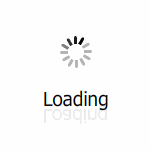One of cryptocurrencies’ most salient features is its ability to perform complex international transactions quickly and seamlessly. When Russia invaded Ukraine, international sanctions made it extremely difficult for the aggressor to perform monetary transactions. Even though it was initially extremely anti-crypto, the banks of Russia were forced to adopt crypto to navigate through this financial crisis. A lesson can be learned from Russia’s invasion of Ukraine and the sanctions imposed by the West as a result. In international relations, no position is permanent or should be taken for granted. India isn’t much affected by the sanctions today. It won’t get easier to trade with or deal with sanctioned countries tomorrow, but that doesn’t mean it won’t get harder now. When dealing with sanctioned countries, India’s fourth-largest foreign exchange reserves have been rendered useless. To work around these sanctions, India must innovate. It is, fortunately, possible to follow examples around. The topic has also been debated extensively by experts on Twitter.
Ukraine Government Partners with FTX & Blockchain Staking Provider Everstake to Raise $100m in Crypto
The sanctions are crippling Russia’s economy, and the siege on Ukraine is intensifying. Fearing the flight of money from their own economies abroad, both Russia and Ukraine have imposed capital controls on their citizens and companies. ATM queues in both countries have been reported to be hours long. Even when you get to an ATM, you can’t get enough cash to survive war and inflation. It may also not be a good idea to hold large amounts of cash in a war zone. The clearing of checks and wire transfers through the traditional banking system has also been taking longer. They do not have access to the Unified Payments Interface (UPI). According to Russian ministers, the country will galvanize the use of cryptocurrencies. There is no question why Russia would want to participate in the crypto economy. While Putin was prepared for Western sanctions, he was not prepared for their intensity and speed.
After the invasion, the rouble’s value declined by over 60% before it was propped up again. In an instant, Russia’s offshore forex reserves of $300 billion, which represent over 40% of its total reserves, were frozen. Also, SWIFT (Society for Worldwide Interbank Financial Telecommunication) has been cut off from Russia. To augment its strangled financial networks, Russia turned to cryptocurrency. A first for a sovereign country, the Ukrainian government announced partnerships with Bahamian crypto firm FTX and decentralized blockchain staking provider Everstake. These partnerships will funnel cryptocurrency donations to its central bank. A total of $30-100 million has been raised in cryptocurrencies such as bitcoin, ether, tether, litecoin, dogecoin, and about 20 others. Kyiv and its citizens have been able to navigate global financial systems with ease thanks to the use of crypto. Considering bitcoin transactions settle within 10 minutes on average and other cryptocurrencies even faster, it is no wonder people living under siege would turn to cryptocurrencies.
Borderless, Permitless & Immutable Tokens to Help Navigate Parallel Economies
It could be argued that the original value proposition of cryptocurrencies is being realized in this war. By design, cryptocurrency transactions settle quickly across borders and remove trust from the equation. Consequently, sanctioning or otherwise controlling these transactions is much more challenging. In times of sanctions or war, cryptocurrency isn’t a panacea. Cryptos are highly volatile as of now and may not be an ideal ‘reserve’, store of value, or exchange medium. Crypto lenders have filed for bankruptcy as prices have plummeted dramatically, with US firm Celsius being the latest to join this dubious list. As well, some argue that Russia may not be able to evade sanctions using crypto because major cryptocurrency blockchains cannot keep an economy as massive as Russia’s afloat. The majority of popular cryptos are semi-anonymous and can fall prey to the very sanctions they are designed to evade. However, Russia’s experience with sanctions has demonstrated that countries like India should give cryptos a fair chance.
US sanctions are being imposed on an increasing number of countries. The US sanctions Cuba, Iran, North Korea, Syria, China, and Russia to varying degrees. Sanctioned nations cannot use the dollar, or operate under severe restrictions. Russian sanctions have questioned the dollar’s preeminence and the US’ hegemony in global finance. As a result of geopolitical alliances, parallel economies could flourish. Currency was identified as a ‘clear danger’ that could lead to macroeconomic instability and dollarisation. In the new world order, it may very well be a macroeconomic lifeboat. Cryptocurrencies can be used to navigate parallel economies and deal with sanctioned economies because they are borderless, permitless, and immutable. Cryptocurrencies are held in large quantities by the US government itself. Cryptocurrencies like bitcoin and ethereum should be stocked up on early by India for its forex reserves at a reasonable price. After all, cost-averaging works even for central banks.
Via this site Clear danger or lifeboat? Reasons why India needs to give cryptos a chance – Economic Times




